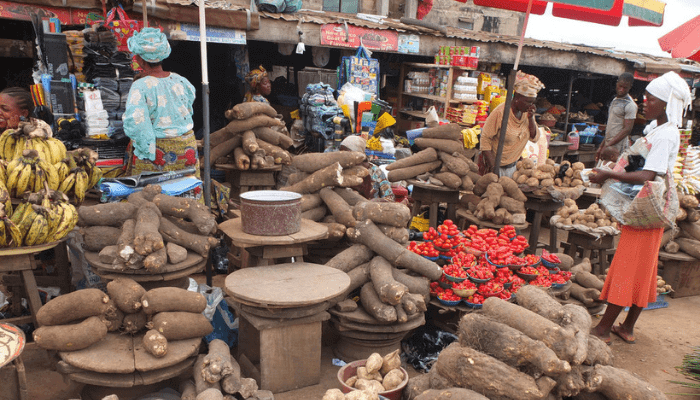The federal government has launched the Nigerian Farmers’ Soil Health Scheme (NFSHS), a groundbreaking national initiative aimed at establishing 774 soil testing laboratories across the country and doubling crop yields as part of efforts to strengthen food security, reduce production costs, and enhance agricultural productivity.
The programme, unveiled at the Presidential Villa, Abuja, on Tuesday, is a flagship component of President Bola Ahmed Tinubu’s Renewed Hope Agenda for agricultural transformation and self-sufficiency.
Aliyu Sabi Abdullahi, minister of State for Agriculture and Food Security in his remarks said the initiative would revolutionise fertiliser use and soil management by ending years of guesswork among farmers.
“The Nigerian Farmers’ Soil Health Scheme will help farmers know what their soil needs, grow more, and spend less,” he stated.
“Under the plan, farmers will receive personalised soil health cards containing details such as fertility levels, pH balance, and crop-specific fertiliser recommendations.”
He said a digital platform, the Nigeria Soil Information System (NiSIS), will also be developed to aggregate soil data for evidence-based decision-making, research, and private sector investment.
According to Abdullahi, the scheme has the potential to raise rice yields from 60–80 bags per hectare to 120–160 bags, while wheat and maize outputs could double from 50 to 100 bags per hectare. Onion yields, he added, are expected to increase from 400 to 800 bags per hectare, signaling a major productivity leap across crop value chains.
Implemented through a Public-Private Partnership (PPP) framework, the NFSHS will create jobs for rural youth and women while promoting climate-smart, environmentally sustainable farming.
The project is being supported by key development partners including the World Bank, GIZ, the International Institute of Tropical Agriculture (IITA), and the Bill & Melinda Gates Foundation.
Also speaking, Abubakar Kyari, minister of Agriculture and Food Security, described the scheme as a major step in rebuilding the foundation of Nigeria’s agricultural systems through scientific soil management, digital innovation, and precision agriculture.
He lamented that about 65% of Nigerian farmers are losing soil fertility, with more than 400,000 hectares of arable land lost annually to erosion and desertification.
“Declining soil quality has become one of the most serious constraints on productivity in sub-Saharan Africa,” Kyari said. “Until we fix the soil, every other investment will yield only a fraction of its potential.”
Kyari added that the Tinubu administration has already distributed 2.15 million bags of fertilizer, 2,000 tractors, and 9,000 implements, alongside expanded cultivation on 500,000 hectares under the Biosecurity Farming Initiative, to boost productivity and reduce import dependence.
He noted that the soil health programme complements these ongoing reforms and will ensure that “every kilogram of fertiliser counts.”
Read also: WiM-Africa urges female artisanal miners to unite through joint ventures
Bello Kaoje, chairman, House Committee on Agricultural Production and Services, commended the initiative as “a strategic and timely intervention” that addresses the root of Nigeria’s food security challenge.
“Healthy soil means higher yield, better nutrition, and resilience to climate change,” he said.
“The National Assembly will ensure this scheme is implemented with transparency, efficiency, and tangible benefits for our farmers.”
The Soil Health Scheme, according to officials, marks a turning point in Nigeria’s agricultural policy—moving from guesswork to precision, and from subsistence to prosperity, with every farmer empowered and every soil restored.











